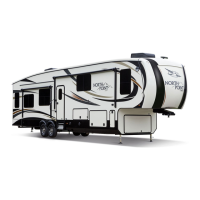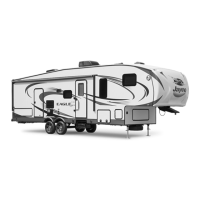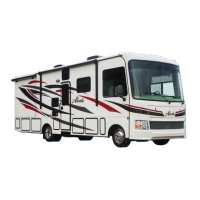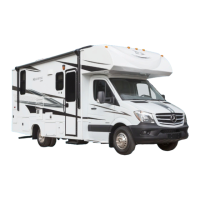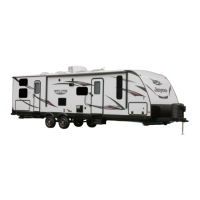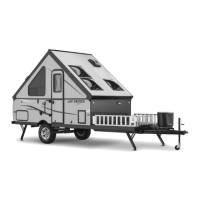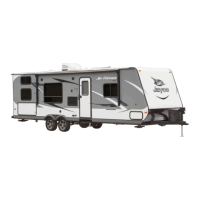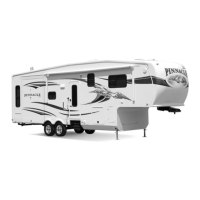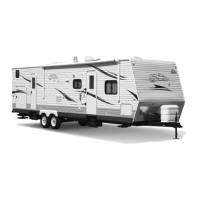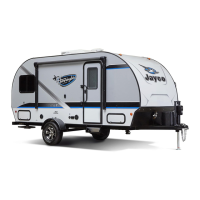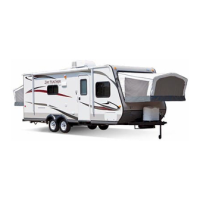39
vehicle operation
Towing
You will nd that your RV will travel safely and comfortably at most posted trailer highway
speed limits. However, it will take longer than a passenger automobile to reach that speed.
Keep this in mind when overtaking and passing another vehicle.
Allow more time to go around the vehicle you are passing.
You cannot cut back into the trafc lane as quickly due to the longer length of your tow
vehicle/RV combination. Drive with caution to avoid situations that might require quick
momentum changes.
Even though your RV is equipped with brakes designed for GVWR, we suggest practicing
stopping away from trafc until you become accustomed to your RV’s stopping distance. A
good way to practice is at a large parking lot (where it is permissible). Easing to a stop and
starting smoothly saves wear and tear on your tow vehicle/RV combination.
Be aware of road surface conditions. Slow down well in advance of dips and bumps to
reduce the jolting to your tow vehicle/RV combination. Drive over them slowly and let the
trailer tires pass over them before accelerating. Cross railroad tracks slowly (always release
your brakes before crossing).
Adverse weather conditions and extremes in terrain may affect the performance and handling
of your tow vehicle. Do not operate the tow vehicle cruise control on icy or extremely wet
roads, winding roads, in heavy trafc or in any other trafc situation where a constant speed
cannot be maintained.
When descending a long hill, drop down into a lower gear (or lower range if you have
automatic transmission). Avoid conditions that require excessive and prolonged use of your
brakes. Apply and release brakes at short intervals to give them a chance to cool. The tow
vehicle transmission and engine will help in controlling downhill speed and can lengthen
brake life. The distance required to stop the RV is greater than an automobile’s. Use care
when accelerating or decelerating on a slippery surface. Abrupt speed changes can cause
skidding and loss of control.
Your RV braking system is rated for operation at GVWR not GCWR.
Whenever possible, do not travel with waste in the holding tanks. Liquid or
debris in the holding tank(s) may affect the towing characteristics and may
result in property damage or personal injury.
The propane cylinder(s) should be turned off when traveling. Most refrigerators
will keep food cold or frozen for eight hours without running while you travel
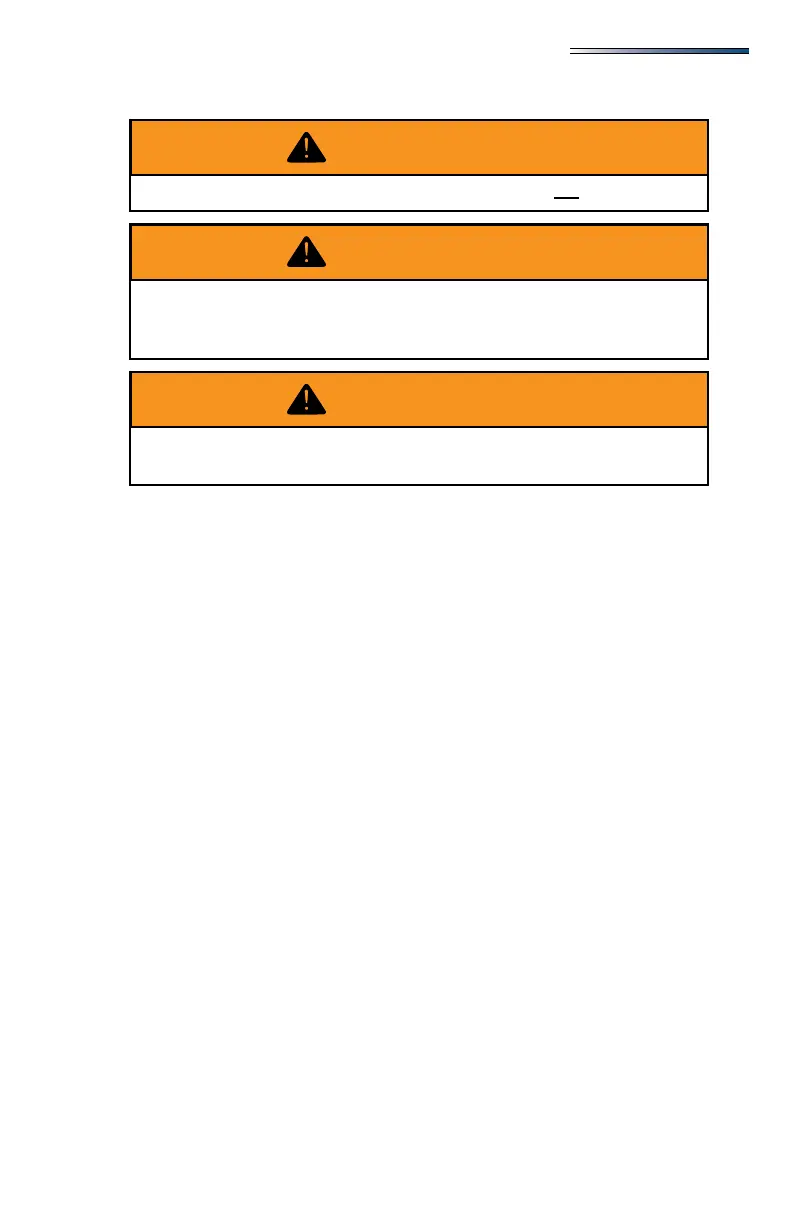